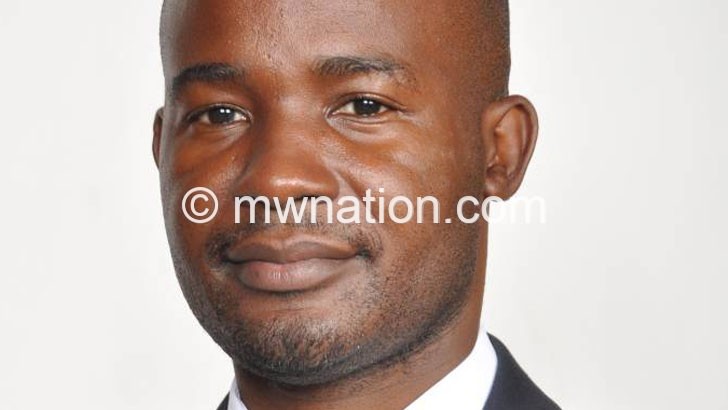Committee to meet Minister over carbon tax
Following a backlash over carbon tax which Malawi Revenue Authority (MRA) starts collecting from tomorrow, the Budget and Finance Committee of Parliament intends to meet Minister of Finance for clarification on the utilisation of the fund.
MRA announced that from tomorrow (November 25 2019) it will start collecting carbon tax, targeting motor vehicles renewing their Certificate of Fitness (COF), a decision which has attracted mixed reaction from experts and the public.

But chairperson for the Budget and Finance Committee Sosten Gwengwe said while they appreciated government’s intention to introduce this form of tax as a way of widening the tax base, their recommendation was that such funds had to be used in line with international agreements on managing climate change.
He said, with the backlash, the committee plans to meet Minister of Finance, Economic Planning and Development Joseph Mwanamvekha to seek clarification on exactly how the funds collected from this tax will be utilised.
Gwengwe also fears that if the taxes go into Account Number One, they may not serve the intended purpose.
“We thought this tax will be collected through relevant agencies such as the ministry responsible for natural resources or environment or even Mera [Malawi Energy Regulatory Authority] but, apparently, internally they have agreed that it should be MRA collecting the tax to help towards environment initiatives. And the question remains how will this money be used?” Gwengwe queried.
According to Gwengwe, the committee will schedule a meeting with Mwanamvekha, and where this move would not work, they would use the Mid-Term Budget Review to probe this tax arrangement.
Analysts say while the carbon tax intention is good, they are skeptical on how funds will be used since government has not provided a clear explanation, apart from making the announcement.
MRA’s move follows the 2019/20 budget statement, which indicated that government was to introduce the carbon tax. According to the announcement, the carbon tax will be applicable when renewing a vehicle’s CoF.
During presentation of the 2019/20 National Budget statement, Mwanamvekha announced that government intended to introduce a carbon tax as a way of widening the tax base which some environmentalists find to be wrong as such funds, elsewhere, are exclusively meant for purposes of managing the environment.
“Madam Speaker and Honourable Members, in order to expand the revenue base and as part of the initial steps to mitigate the effects of climate change, Government has introduced a carbon tax on local and foreign registered motor vehicles respectively.
“The carbon tax will be calculated based on the engine capacity of the motor vehicle and the applicable rates ranging from K4 000.00 to K11 500 will be published in the Gazette. In terms of application, locally registered motor vehicles will be exempted at first registration and payments for locally registered motor vehicles will be done annually. Foreign registered motor vehicles will require payment of the Carbon Tax at the port of entry,” reads the budget statement.
Centre for Environmental Policy and Advocacy (Cepa) executive director William Chadza said the introduction of the tax is a welcome development as it is in line with the global trend to manage carbon emissions.
He, however, said the problem with the Malawi scenario is that government is introducing the tax without outlining specific programmes and initiatives that will be supported to mitigate cut down on carbon emission, which is a global concern.
“It is a positive move so that we can contribute to carbon sequestration [management] because as Malawi, our industry, including vehicles, are contributing towards emissions although the levels are on the lower side. But we need to know which programmes are there that need this money to do the carbon sequestration?
In an earlier interview with our sister newpaper The Nation, environmental activist Julius Ng’oma, national coordinator of the Civil Society Network on Climate Change (Cisonecc) while lauding the new tax measure, equally had reservation with the lack of clarity on the management of funds.
“But carbon tax revenue needs to be channelled to the Climate Change Fund and not Account Number One, and mechanisms should be put in place so that the money from carbon tax should assist in the fight against climate change rather than diverting it to other purposes,” he said
In exercise of the powers conferred by Section 77 of the Environment Management Act of 1996, the then Minister of Natural Resources, Energy and Mining Aggrey Masi on December 12 2018 established the Climate Change Fund to provide financial and other resources for undertaking climate change interventions in Malawi.
But based on the budget statement, there is little likelihood that the carbon tax will be used only for purposes of climate change initiative as Mwanamvekha hinted on widening the tax base as the primary intention.
The criticism on social media is largely against the plan to introduce the tax in view of the high taxes that the citizenry is exposed to. Some say it is unfair to add more burden on strained taxpayers.
When contacted for a comment Mwanamvekha confirmed that the carbon tax will go to Account Number One and will be used for development purposes, and not just the environment.
He said government already allocates funds to the ministry responsible for natural resources, part of which is used for proposed interventions.
He said it is surprising that people are surprised with the introduction of carbon tax, when it is a global practice.
When told that elsewhere such funds are reserved for climate change initiatives, he said: “As we go on, we may consider allocating more funds towards environment-related initiatives, but we are already doing a lot to support environment-related initiatives.”
He dismissed fears that the new tax will burden citizens more, arguing that locals will pay it once a year on renewal of CoF while foreign cars will pay every time on point of entry.





